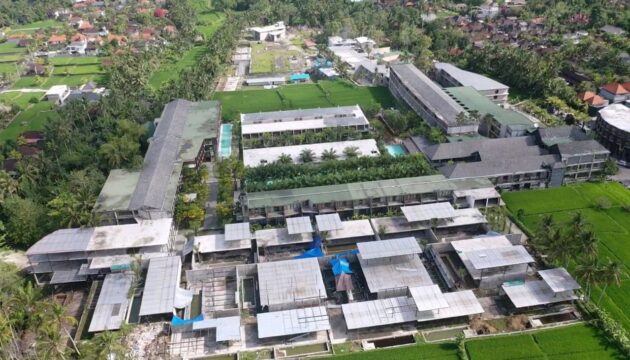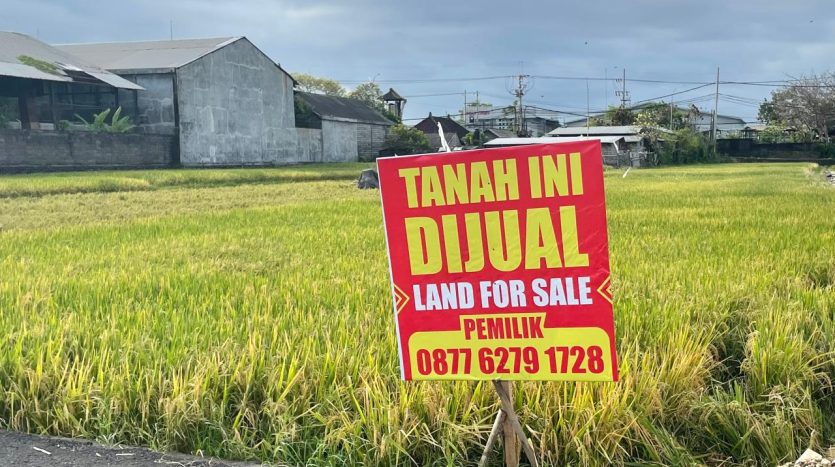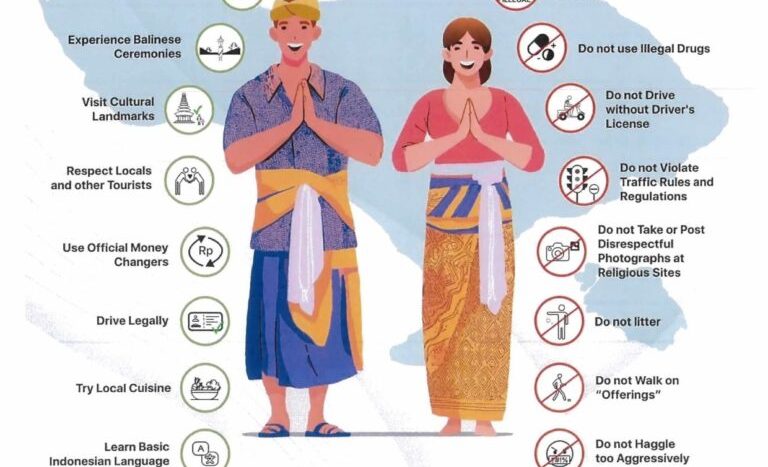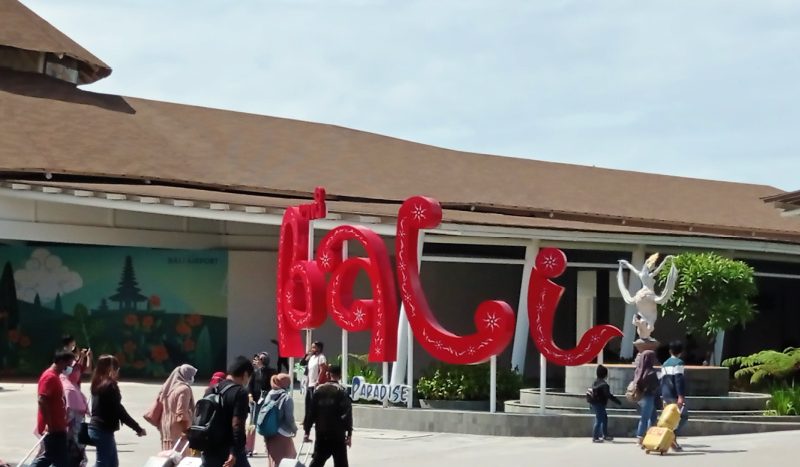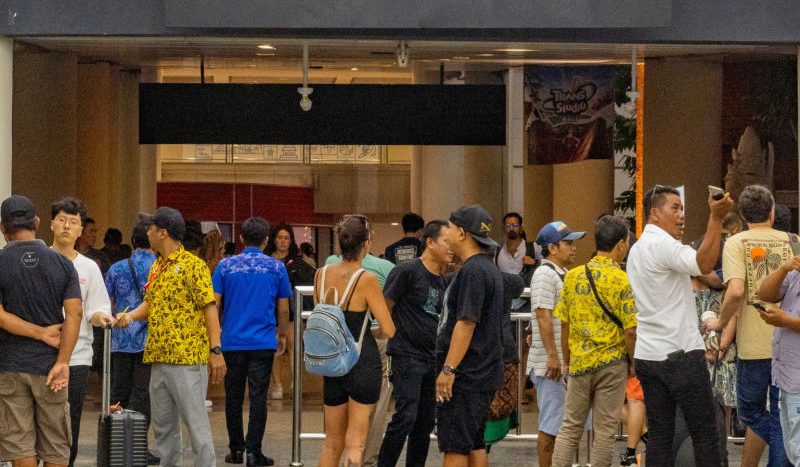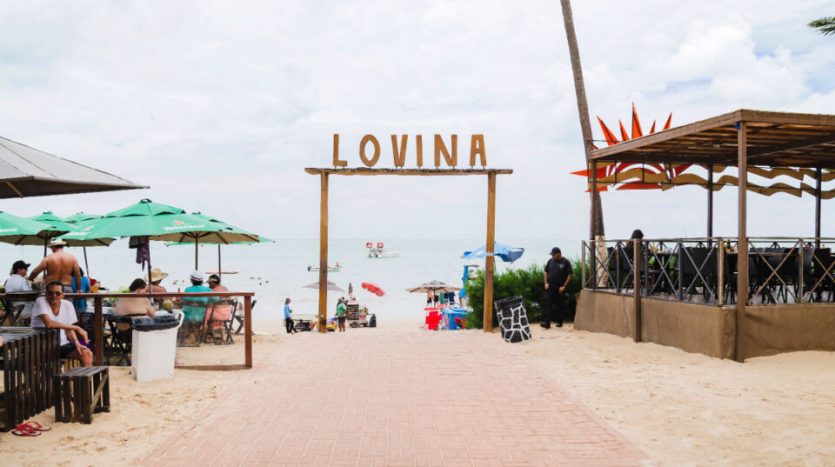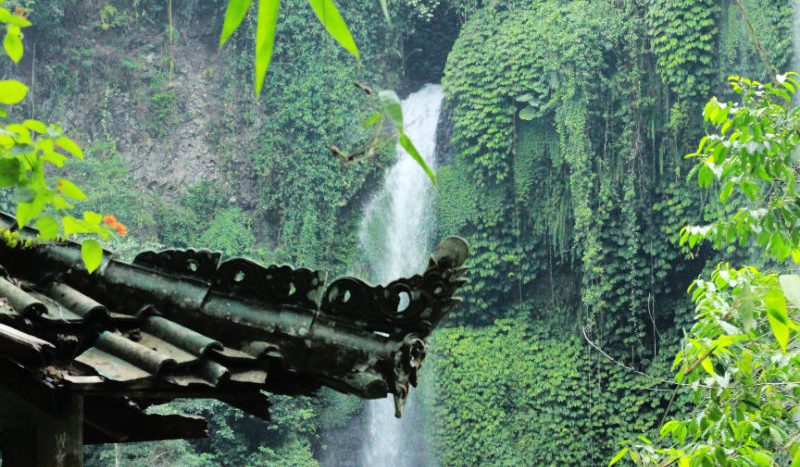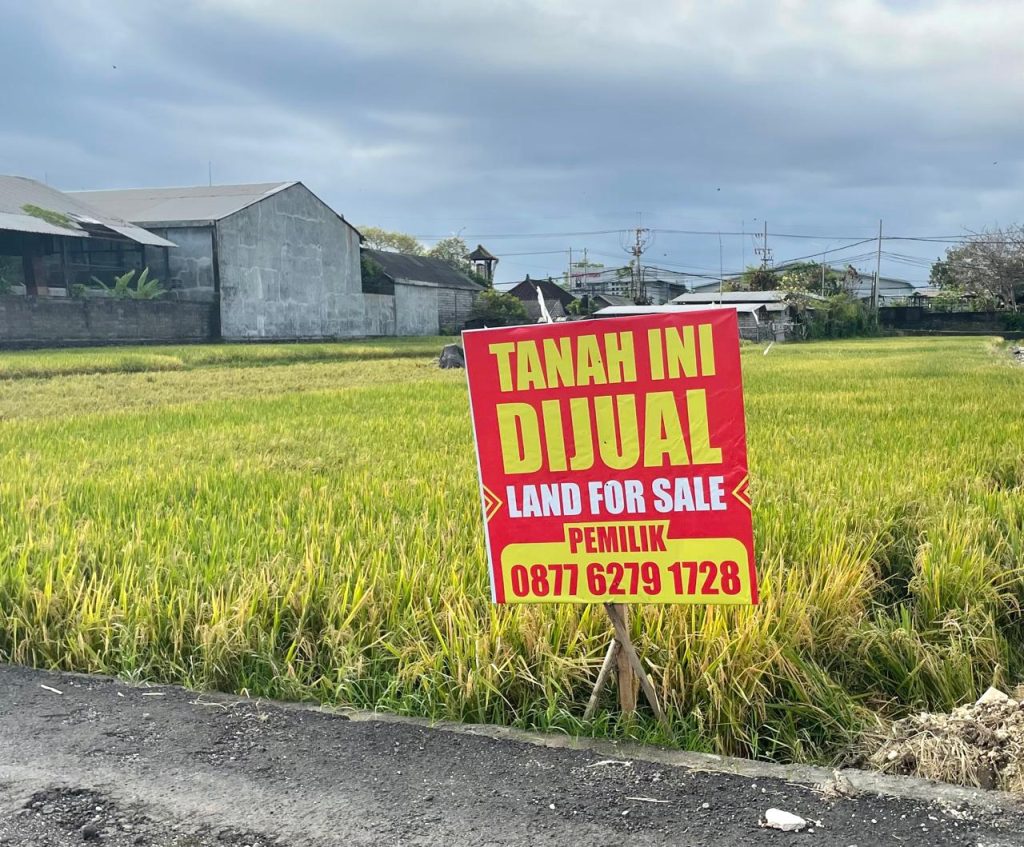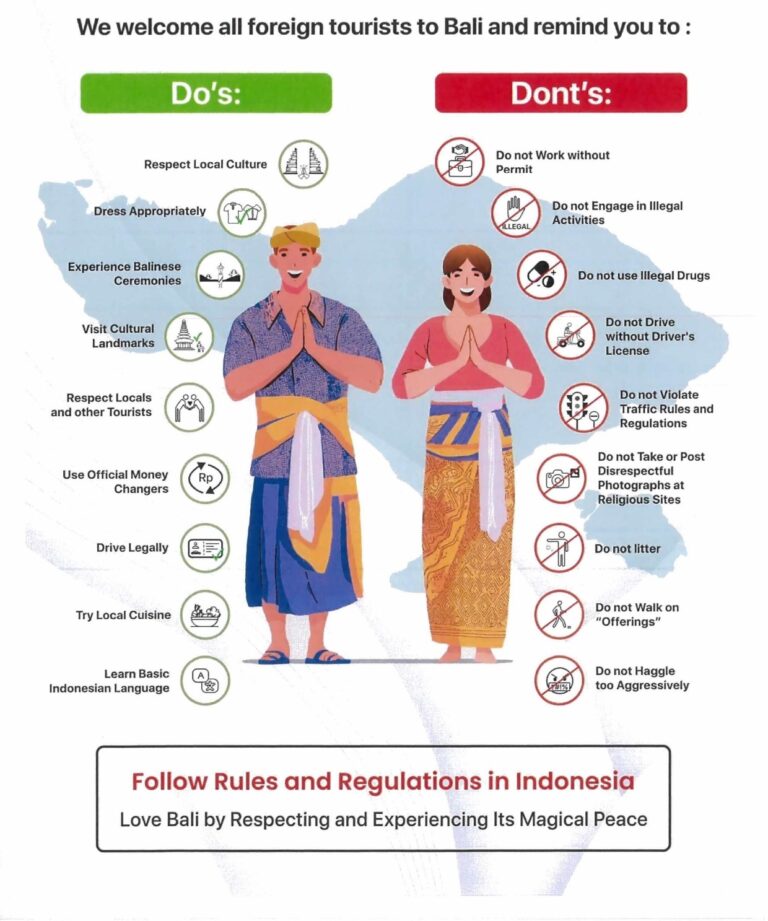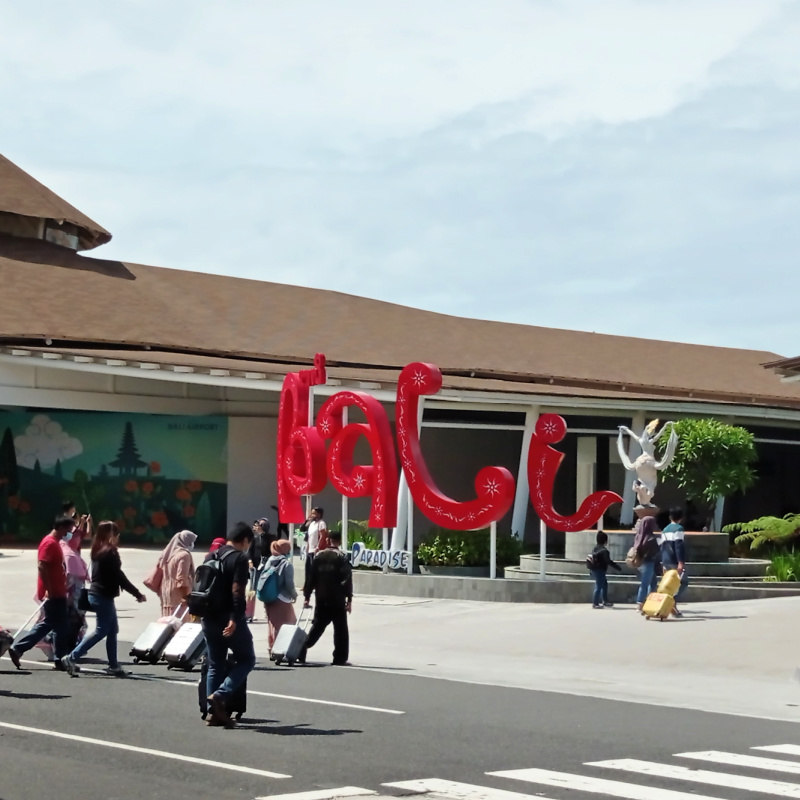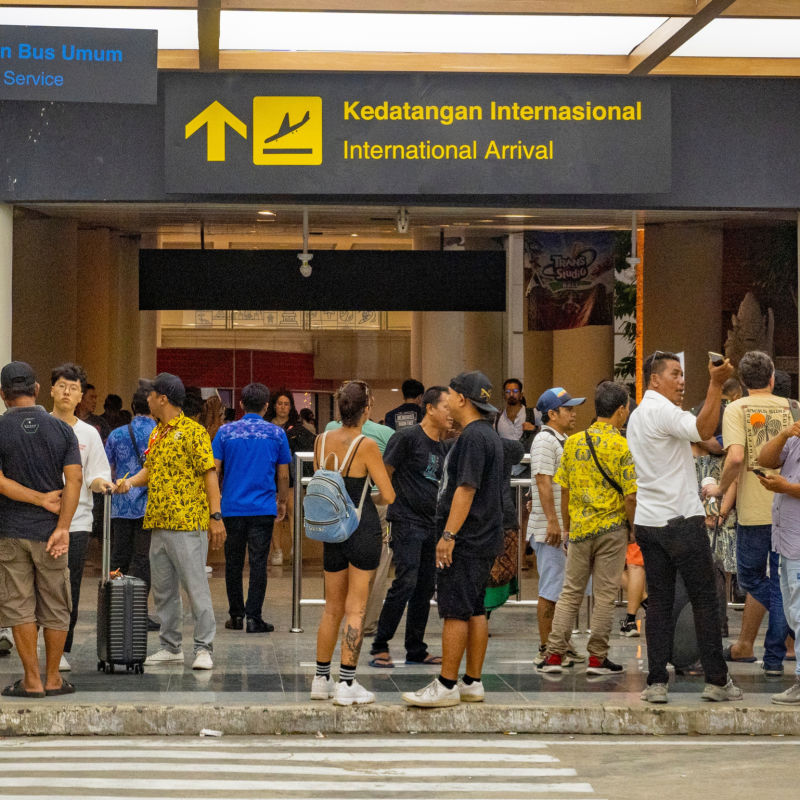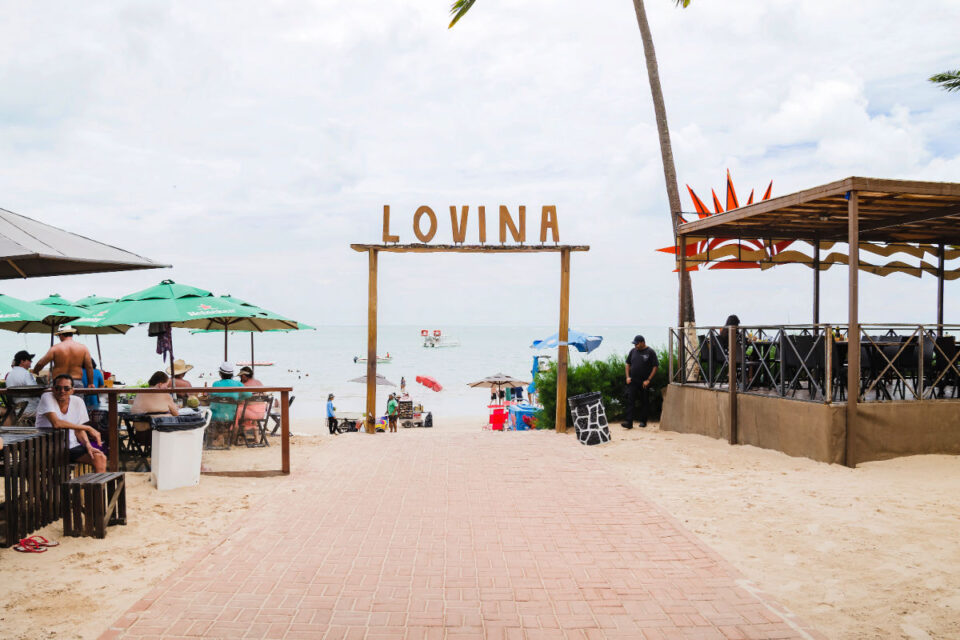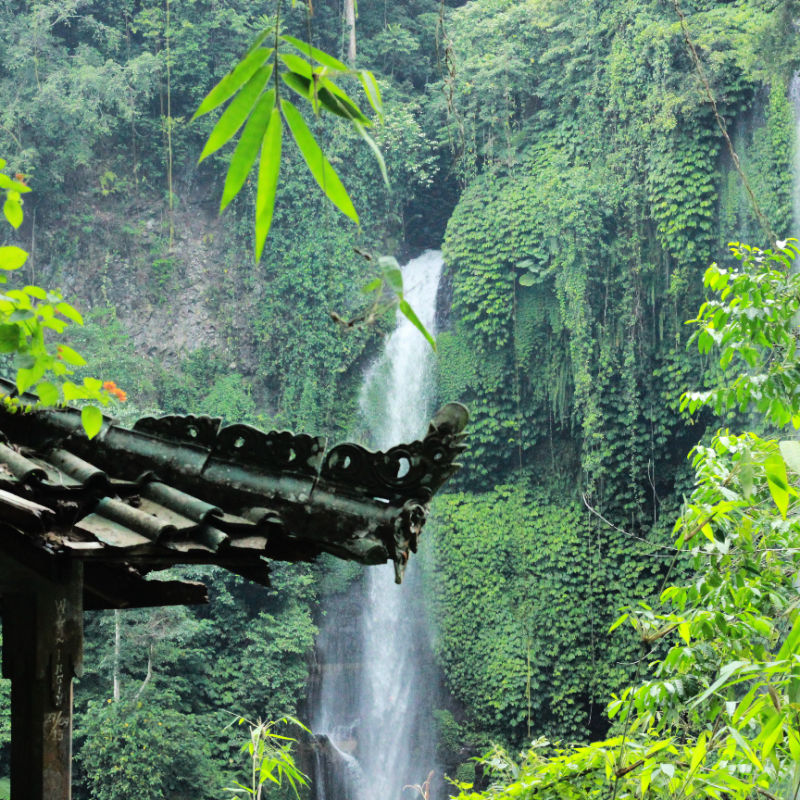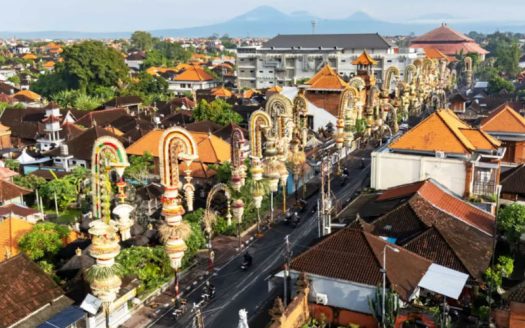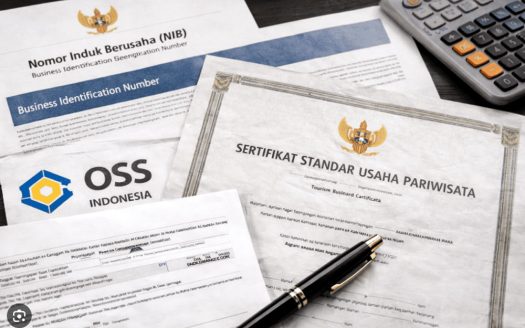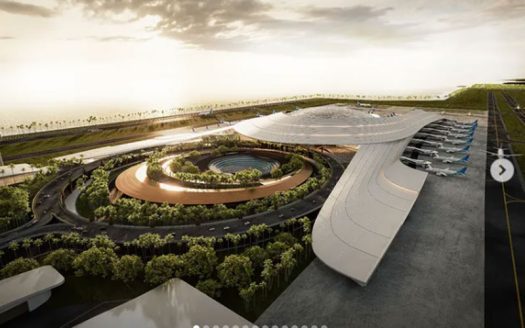Bali Building Ban
Bali Building Ban – Beritabali.com reports that the Provincial Government of Bali has formally imposed a moratorium on the construction of hotels, villas, restaurants, and similar enterprises on productive lands and areas designated for agriculture and the absorption of rainwater.
The moratorium is being imposed following heavy flooding across vast areas of Bali that caused tremendous property damage and claimed at least 18 lives.
Bali Governor Wayan Koster states that the moratorium represents a strategic step to halt the conversion of agriculturally productive lands to other commercial pursuits.
“Starting in 2025 and in accordance with Bali’s 100th Anniversary celebrations, there will be no further conversion of productive land for commercial purposes, such as hotels and restaurants. I have issued this instruction to the Regents and Mayors. After flood management is complete, we will meet again to ensure that no new permits violate this policy,” Governor Koster stated on Monday, 15 September 2025.
Main Article: Bali Building Ban
This moratorium was declared following a joint meeting with Hanif Faisol Nurofiq, Minister of Environment and Forestry (LHK), the Regent of Badung, the Mayor of Denpasar, and the Bali Provincial Leadership Communication Forum (Forkopimda) at the Kerthasabha Building, Jayasabha, Denpasar.
Environment and Forestry Minister Hanif Faisol Nurofiq highlighted the critical condition of the Ayung River Basin (DAS), which has only 1,500 hectares (3%) of total forest cover remaining out of a total area of 49,500 hectares. Ecologically, a minimum of 30 percent tree cover is projected as necessary to maintain environmental balance and prevent water runoff that can result in flooding. “The Ayung River Basin is a vital waterway that transects Denpasar, Badung, Gianyar, and Tabanan. If only 3 percent of the forest cover remains, the capacity to withstand and absorb rainfall is clearly very low,” said Hanif.
Environment and Forestry Minister Hanif Faisol Nurofiq highlighted the critical condition of the Ayung River Basin (DAS), which has only 1,500 hectares (3%) of total forest cover remaining out of a total area of 49,500 hectares. Ecologically, a minimum of 30 percent tree cover is projected as necessary to maintain environmental balance and prevent water runoff that can result in flooding. “The Ayung River Basin is a vital waterway that transects Denpasar, Badung, Gianyar, and Tabanan. If only 3 percent of the forest cover remains, the capacity to withstand and absorb rainfall is clearly very low,” said Hanif.
Hanif explained that although Bali has lost 459 hectares of forest in the past decade, the impact has been significant on its environmental carrying capacity. Therefore, he fully supports the moratorium. Adding: “Bali cannot act carelessly. Its spatial planning must be reviewed, as its position is already highly vulnerable to hydrometeorological disasters.”
On Monday, 15 September, a team from the Ministry of Environment and Forestry, along with provincial and district/city government authorities, began evaluating the Strategic Environmental Assessment (KLHS) for Bali’s spatial planning. Koster also emphasized that recent flooding should serve as a crucial reminder for all parties to prioritize environmental sustainability.
“Rivers are a source of life, and we must protect Bali’s ecosystem for future generations,” he said.
Main Article: Bali Building Ban
Bali Foreign Visitors Guideline
Bali Sets New Guidelines for Foreign Visitors
Presented to maintain order and preserve Bali’s cultural integrity, Governor Wayan Koster has issued Circular Letter (SE) Number 7 of 2025 setting forth new guidelines for foreign tourists visiting the island.
The new regulations aim to address growing concerns over misbehavior among visitors and ensure that Bali’s tourism industry aligns with local laws and customs.
Governor Koster announced the new guidelines at a press conference held at his Jayaabha Office on Monday. 24 March 2025.
In announcing the new guideline, the Governor was accompanied by Bali’s Tourism Office Head, Tjokorda Bagus Pemayun. Koster acknowledged the evolving challenges in the tourism sector over the past 1.5 years. He explained that this circular announcement is based on an earlier circular memorandum (SE Number 4 of 2023), but updated to address recent developments.
“We issued a similar regulation before, but as things change, we need to adapt. This ensures that Bali’s tourism remains respectful, sustainable, and in harmony with our local values,” said Governor Koster as he reaffirmed his commitment to high-quality, culture-based tourism, emphasizing that all tourism industry players will be held to clear standards.
“Before we finalize the new Regional Regulation (Perda) and Governor’s Regulation (Pergub) later this year, I am implementing this circular as an immediate measure to regulate foreign tourists while they are in Bali,” he stated.
What Foreign Tourists Need to Know
Under the new regulations, foreign visitors must:
- Respect sacred sites and symbols:This includes temples, religious statues (pratima), and other holy places. Visitors are expected to observe and respect Balinese customs, traditions, and cultural practices, particularly during ceremonies and rituals.
- Dress appropriately:When visiting temples, tourist attractions, or public spaces, tourists are expected to wear modest and respectful clothing.
- Behave respectfully:Whether at religious sites, restaurants, shopping areas, or public roads, tourists must maintain polite and considerate behavior.
- Pay the tourist levy: The mandatory tourist fee must be paid electronically via the link https://lovebali.baliprov.go.id/ before or during a holiday stay.
5 .Use licensed tour guides: When exploring cultural or natural sites, tourists must be accompanied by a certified guide who understands local traditions and natural conditions.
- Exchange currency at authorized money changers: Transactions should only be conducted at licensed exchange services with official QR codes issued by Bank Indonesia.
- Follow traffic laws –Tourists driving in Bali must:
- Have a valid international or national driver’s license
- Wear a helmet when riding a motorcycle
- Follow traffic signs and do not overload vehicles
- Avoid driving under the influence of alcohol or drugs
- Use legal transportation:Only licensed car rentals or transport services should be used.
- Stay at licensed accommodations:Visitors must book hotels, villas, or homestays that comply with Bali’s legal accommodation standards.
What Tourists Are NOT Allowed to Do
- Enter sacred temple areas (Utamaning Mandala & Madyaning Mandala)unless they are acting as worshippers wearing traditional Balinese attire. Menstruating women are also prohibited from entering these sacred areas.
- Climb sacred trees or monuments: This includes taking inappropriate or nude photos at religious sites.
- Litter or pollute Bali’s environment: Throwing waste in lakes, rivers, or the ocean is strictly prohibited.
4.Use single-use plastics: Plastic bags, Styrofoam, plastic straws, and plastic-packaged drinks are banned.
- Engage in aggressive or disrespectful behavior: This includes swearing, causing disturbances, or being rude to locals, officials, or fellow tourists. Sharing hate speech or misinformation on social media is also prohibited.
6.Work or run a business without proper permits: Tourists are not allowed to conduct business or work in Bali unless they hold official documentation from Indonesian authorities.
- Participate in illegal activities;This includes trading drugs, endangered animals, sacred artifacts, or any other prohibited goods.
Main Article: Bali Building Ban
Enforcement & Penalties
Governor Koster made it clear that these rules will be strictly enforced.
Tourists who fail to pay the tourist levy will be denied access to tourisr attractions, and those caught violating the regulations will face legal consequences in accordance with Indonesian law.
To report violations, the public is encouraged to use the official WhatsApp hotline: +62 81-287- 590-999.
Bali’s Civil Service Police Unit (Satpol PP) will actively monitor compliance, while the Bali Police will take legal action against serious offenders.
“All stakeholders must fully understand, implement, and communicate this circular to their teams and foreign visitors. Bali is a beautiful, sacred island, and we expect our guests to show the samerespect that we extend to them,” Governor Koster concluded.
Speed Up Development Of New North Bali Airport
Disruptions At Bali Airport Trigger Calls From Leaders To Speed Up Development Of New North Bali Terminals
Momentum is building on the North Bali International Airport project. The development has been in the pipeline for nearly a decade, and leaders across the province are keen to ensure that this is the time that the idea for a new transportation hub finally comes to fruition.
Over the weekend, Bali’s I Gusti Ngurah Rai International Airport experienced a major power outage that affected more than 40 international flights. The travel disruption is one of a series of major incidents that have affected air travel in Bali in recent months.
In May, Bali experienced a province-wide blackout that affected several domestic and international flights. More importantly, it disrupted many tourists’ ability to coordinate travel to the airport, as they were left without WiFi and unable to charge their devices.
Though Bali Airport remained open during the devastating floods that affected many parts of Bali in September, many access roads to the terminals were impassable due to rising flood waters for many hours.
Main Article: Bali Building Ban
Both of these incidents, combined with the ever-present risk of earthquakes, tsunamis, and volcanic eruptions in Bali, have triggered leaders to call for efforts to build North Bali International Airport to be sped up.
Bali Senator Gde Sumarjaya Linggih told reporters that the development of a second international airport in Bali is essential to help ensure that the island is better prepared for disaster and has a stronger network of connectivity.
Bali Airport’s power was out for one hour, but shockingly, backup systems that operate independently of the grid did not work. Senator Linggih told reporters, “According to standard operating procedures (SOP), a blackout should not last more than a second, just a ‘tek’. So this is a lesson learned to strengthen security systems and power backups.”
He wants to ensure that a second international airport is built as soon as possible so as to ensure that options are available in the event of a force majeure event that would make Ngurah Rai International Airport inoperable for any length of time.
Senator Linggih shared, “We know that Ngurah Rai has experienced several disruptions, and its capacity is approaching its maximum threshold. Therefore, the government needs to immediately determine the location for the construction of a new airport.”
The Senator was clear that, in his view, a second international airport in Bali is necessary, not only to help spread resources and development solutions around the province more widely, but also since expansion at Ngurah Rai International Airport is not deemed to be a viable option due to land availability and high costs.
He told reporters that a new North Bali Airport could bring a multitude of benefits to the province, sharing, “Growth without equity is not quality growth. If development is concentrated in one region, the gap will widen.”
Officials from Bali International Airport issued a formal apology for the weekend’s blackout. The General Manager, Ahmad Syaugi Shahab, shared, “We apologize for the incident.” Adding “During the power outage, we implemented manual handling so that all processes, such as check-in and passenger service, could continue smoothly.”
Main Article: Bali Building Ban
He concluded, “We are currently investigating and continuing to check all equipment. Going forward, we will conduct an evaluation to improve the quality of the electrical system to prevent a similar incident from happening again.”
Plans to build North Bali Airport are moving faster than ever before. Leaders behind the project have even suggested that elements of the transportation hub could be operational as early as 2028.
Alien Design Consultants, who are the architects behind the project, recently shared their vision for the development that will change the face of the island forever.
The company shared “North Bali International Airport is designed to be a symbol of sustainable development. Integration of public transportation, support for electric vehicles, and green open spaces in and around the terminal are key focuses.
The design also reinforces the concept of placemaking: presenting spaces that are not only functional but also reflect Bali’s identity as a cultural gateway.”
Bali Lovina Beach
Lovina Beach Is The Gateway To North Bali’s Natural Wonders
North Bali is having a moment! As leaders look to develop connectivity in the area further and invest in emerging tourism attractions, tourists should consider adding Lovina Beach to their vacation itinerary.
Bali, as a destination, is so diverse and with so much to explore that there is a range of different strategies that tourists can employ.
One strategy is to move location every few days. For example, spending a few nights in Canggu, followed by a few nights in Ubud, before traveling down south again to Sanur.
The alternative is to decide on one ‘launchpad’ style destination and from that point plan a series of day trips around the island. For those to whom the launchpad model sounds like the right course of action, Lovina Beach is the number one launchpad destination in North Bali
Located a good 4-hour drive from Bali Airport, it’s a smart move to travel directly from I Gusti Ngurah Rai International Airport to Lovina to help get the bulk of the travel out of the way early on. Once in place, scheduling a day or so to rest and recalibrate after the journey and to soak in all the wonders that Lovina has to offer is an excellent idea.
Accommodation in Lovina offers a degree of understated luxury and great affordability. For example, The Lovina Bali offers rooms for as little as USD 70 a night for a 4-star stay. Guests have access to a private beach area, as well as private pools, a stunning spa, and excellent in-house eateries. Bali Taman Beach Resort and Spa Lovina similarly offers exceptional value for money, 4-star hospitality, and beachfront access.
Once settled and in flow with North Bali life, it is time to put the launchpad to good use and start exploring what Buleleng Regency has to offer.
Buleleng Regency spans much of the north and northwest of Bali Province and is home to some famous tourism destinations, including Munduk, Singaraja, and Pemuteran.
Tourists keen to experience Bali’s tropical forests and to bathe beneath cool cascading waterfalls must spend a day or more exploring all that Munduk has to offer. This elevated region of Bali can be reached within an hour’s drive of Lovina Beach and is considered to be one of the most beautiful areas of all of Indonesia.
Home to high waterfalls, broad waterfalls, double drop waterfalls, and more, Munduk is one of Bali’s last remaining paradises. While the area is starting to gather a little attention from holidaymakers, it is still a largely under-visited tourist destination in North Bali.
If you had to choose just three waterfalls in Munduk to visit, make sure to add Sekumpul Waterfall, Banyumala Twin Waterfalls, and Aling Aling Waterfall to the itinerary.
Main Article: Bali Building Ban
Be sure to bring towels, swimwear, and sturdy shoes during a day trip to Munduk, and cash too. While most businesses and attractions in the central south of Bali will accept cards, cash is still the standard around these parts.
Using Lovina Beach as a launchpad for culturally inspired adventures, a day trip to Singaraja is an absolute must. While Bali is a majority Balinese Hindu island, there is a strong Buddhist culture here too. Tourists interested in culture and spirituality must visit Singaraja’s Ling Gwan Kiong Buddhist Temple.
The temple, also known as the Tri Dharma Place of Worship (TITD), has been recently renovated and restored. The temple is open to non-worshippers, and temple staff are all too happy to explain to visitors all about the history of the site and the role it plays in the community today.
Singaraja is the perfect place for foodies to visit in the evening in search of authentic Indonesian food. North Bali food culture reflects the richness and diversity of this region’s past, and curious food lovers can take part in a self-led exploration of Singaraja night markets and street food scene. Be sure to order a bubur ayam, which has recently been voted as the best porridge dish in the world!
Please contact us for further information on North Bali property.
Looking for some interesting properties for purchase or rent in Bali’s famous Sanur area?
Main Article: Bali Building Ban

